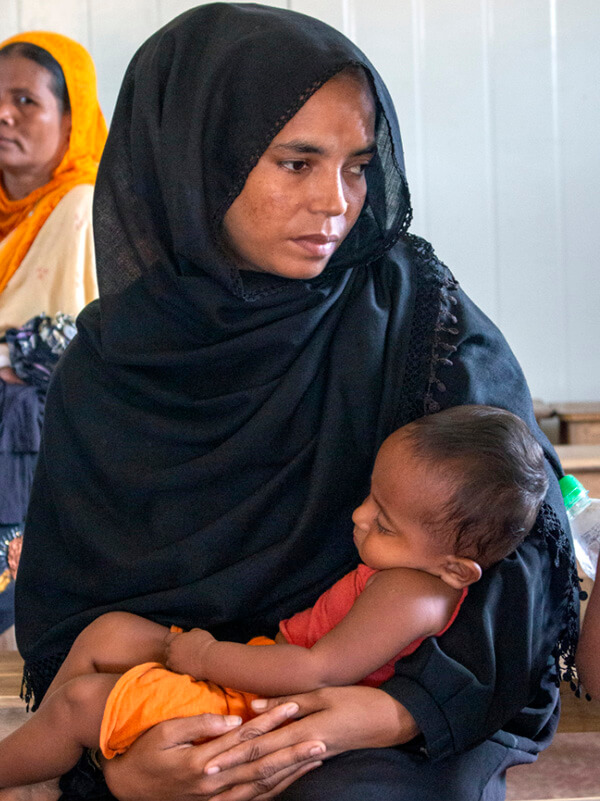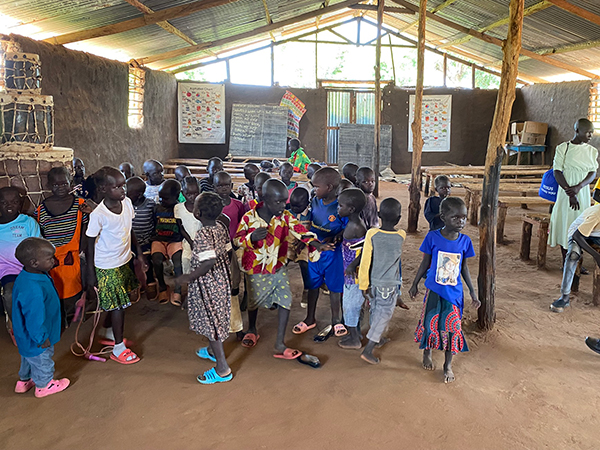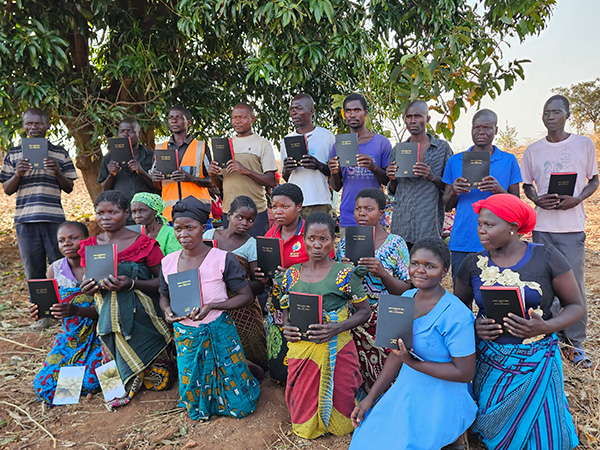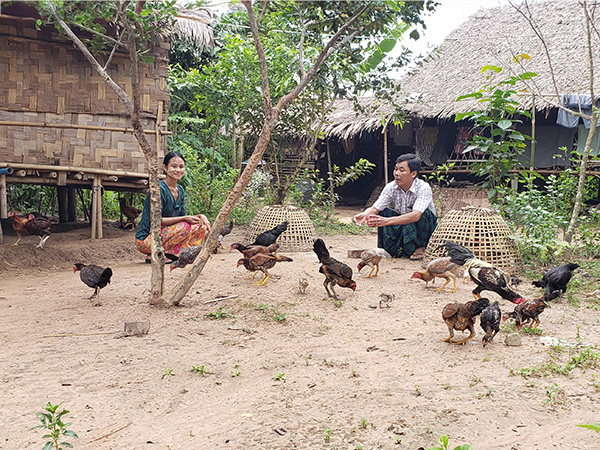The Rohingya refugee crisis began in 2017 when the Myanmar military brutally attacked the Rohingya people in their country, which is a primarily Buddhist country. Thousands were tortured and killed. Houses and villages burned. Approximately one million Rohingya people fled across the border into Bangladesh. Many walked ten to fifteen days through swamps, forests, and mountains before finally reaching safety.
Almost overnight, sleepy fishing villages and forests in Bangladesh transformed into the largest refugee camp in the world. Although the Rohingya people found safety in Bangladesh, the country is grossly inadequate to host this large influx of refugees.
The Rohingya people struggle to survive since stripped of their basic rights. Few jobs or educational opportunities are available to this Muslim people group who has no legal identity or citizenship in Myanmar.
Medical care for refugees
CAM opened a clinic to provide quality medical care for Rohingya refugees to help meet some of the vast needs in the refugee camp. Our staff members hear stories of pain and tragedy as they work to meet physical needs and share Jesus’ compassion.
An elderly patient teared up as he spoke of the time when the Myanmar military forced him to carry their supplies, which is a common and cruel practice. This job required him to be away from his family for months at a time. The military forced him to go to the front line of battle at times where he was an easy target for the enemy. “So many people died,” he said.
A young widow who came to the clinic told the staff how her husband was shot and killed in front of her as they fled Myanmar. This widow managed to bring her husband’s blood-soaked shirt with her. She kept her arms wrapped around her daughter even while she slept because of the fear of losing her child too.
A nurse at the clinic shared, “The sadness, hopelessness, the ‘what do we do now’ attitudes . . . These were the evidences of people fleeing their homeland, losing their homes and businesses, and seeing family members being killed.”
Patients at the clinic often express amazement at the quality medicines available. They also mention the kindness they experience. One day, a distressed patient told the clinic staff how her fourteen-year-old son had run away from home. The staff prayed with her for God to protect him. At her next appointment, she told the staff her son had returned. “I told my husband you had prayed about it!” she proclaimed.
Self-sustaining projects for refugees
CAM is helping Rohingya refugees find ways to provide for themselves in addition to providing medical care. We launched the SALT Agri-Plus program in the refugee camp in 2019. SALT facilitators help refugees with the monumental task of transforming their barren camp neighborhoods into lush garden spaces.
The refugees receive food items like rice and cooking oil from the Bangladeshi government and other relief organizations. But this diet largely lacks nutrients. The one-time gift of seeds, tree seedlings, and cow manure provided by Agri-Plus enables refugees to grow fruits and vegetables to add nutrition to their diet. Each family in this program should have a completely sustainable garden in two years that needs no outside input.
Many look to the future with uncertainty as Rohingya refugees face their fourth year in camp. Will they ever be able to return to Myanmar? And if they do, will they be accepted in the country?
The recent arrival of coronavirus brought added fear to many in the camp. Unpleasant rumors about what could happen to those with symptoms of the virus traveled fast among the refugees. Many sick people are afraid to go to the clinic because they faced severe mistreatment in Myanmar’s health system. It’s easily for them to believe these rumors.
Pray that this refugee crisis would be the end of generations of abuse against the Rohingya people.
The Rohingya Refugee Crisis program needs funds to continue. The anticipated cost for 2020 is approximately $275,000. If you wish to help refugees who have experienced tremendous loss, your support and prayers will be greatly appreciated. God bless you!
